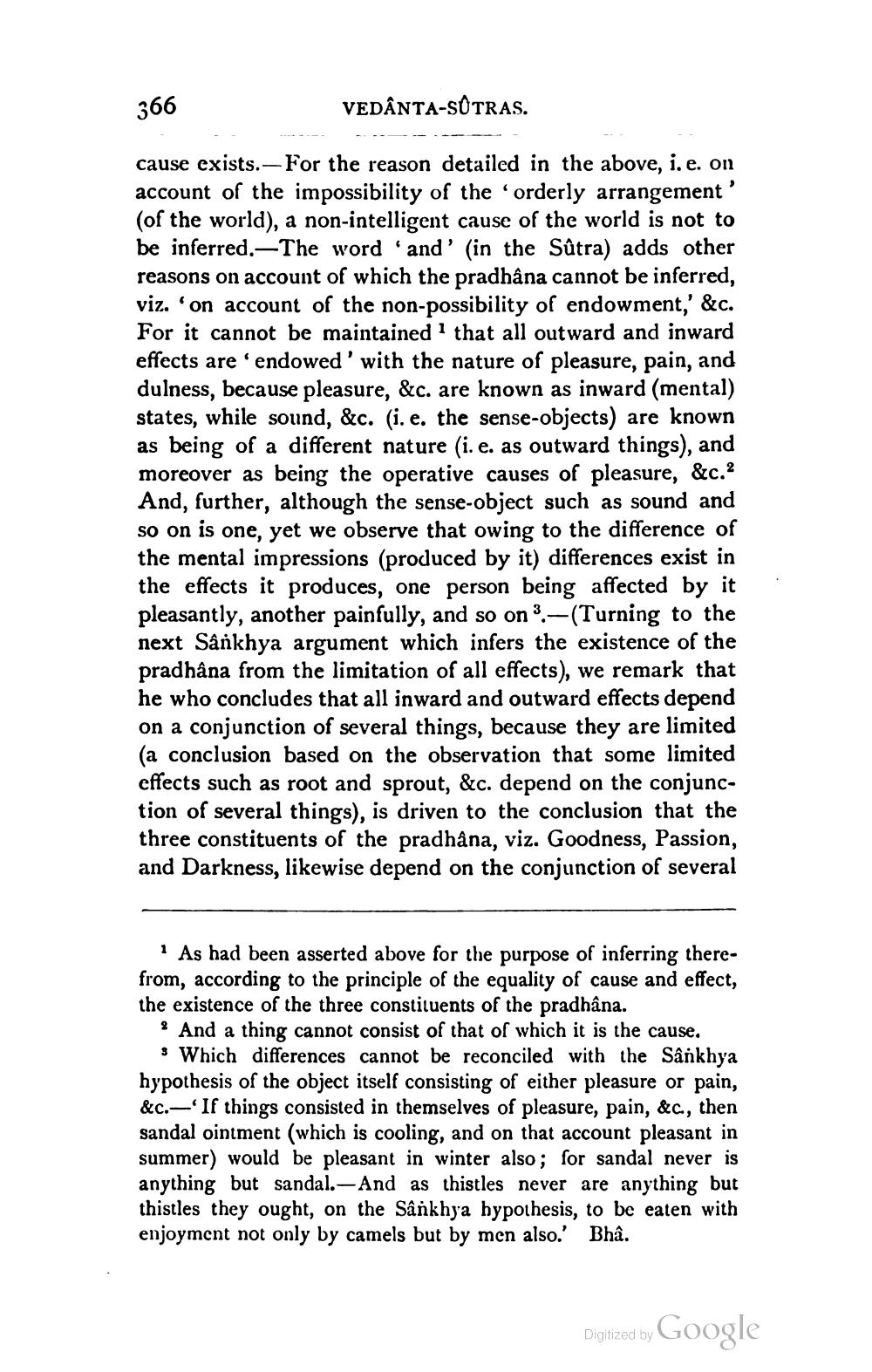________________
366
VEDÂNTA-SÚTRAS.
cause exists. For the reason detailed in the above, i. e. on account of the impossibility of the orderly arrangement' (of the world), a non-intelligent cause of the world is not to be inferred.-The word 'and' (in the Sûtra) adds other reasons on account of which the pradhana cannot be inferred, viz. 'on account of the non-possibility of endowment,' &c. For it cannot be maintained that all outward and inward effects are 'endowed' with the nature of pleasure, pain, and dulness, because pleasure, &c. are known as inward (mental) states, while sound, &c. (i. e. the sense-objects) are known as being of a different nature (i. e. as outward things), and moreover as being the operative causes of pleasure, &c.? And, further, although the sense-object such as sound and so on is one, yet we observe that owing to the difference of the mental impressions (produced by it) differences exist in the effects it produces, one person being affected by it pleasantly, another painfully, and so on 3.—(Turning to the next Sânkhya argument which infers the existence of the pradhâna from the limitation of all effects), we remark that he who concludes that all inward and outward effects depend on a conjunction of several things, because they are limited (a conclusion based on the observation that some limited effects such as root and sprout, &c. depend on the conjunction of several things), is driven to the conclusion that the three constituents of the pradhana, viz. Goodness, Passion, and Darkness, likewise depend on the conjunction of several
* As had been asserted above for the purpose of inferring therefrom, according to the principle of the equality of cause and effect, the existence of the three constituents of the pradhana.
? And a thing cannot consist of that of which it is the cause.
3 Which differences cannot be reconciled with the Sankhya hypothesis of the object itself consisting of either pleasure or pain, &c.— If things consisted in themselves of pleasure, pain, &c., then sandal ointment (which is cooling, and on that account pleasant in summer) would be pleasant in winter also; for sandal never is anything but sandal.- And as thistles never are anything but thistles they ought, on the Sankhya hypothesis, to be eaten with enjoyment not only by camels but by men also.' Bhâ.
Digitized by Google
Digitized by




